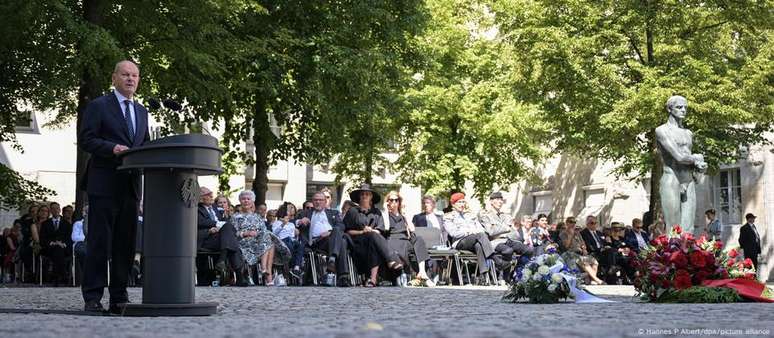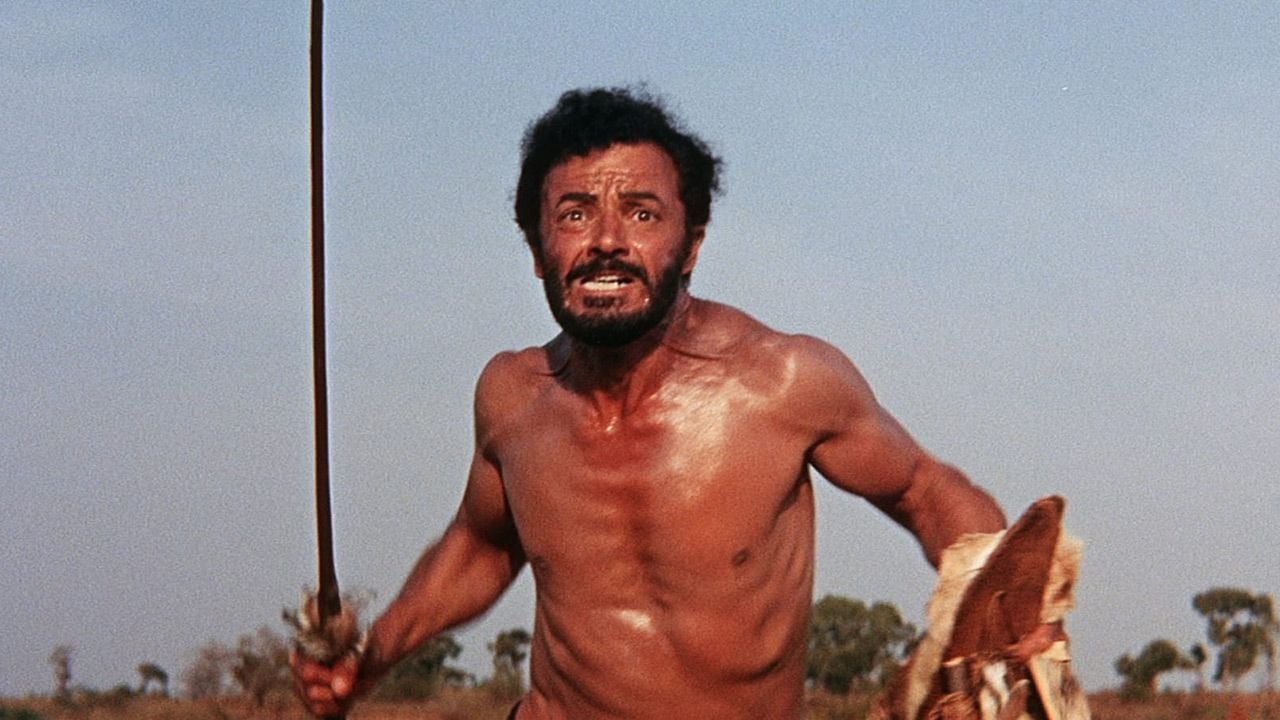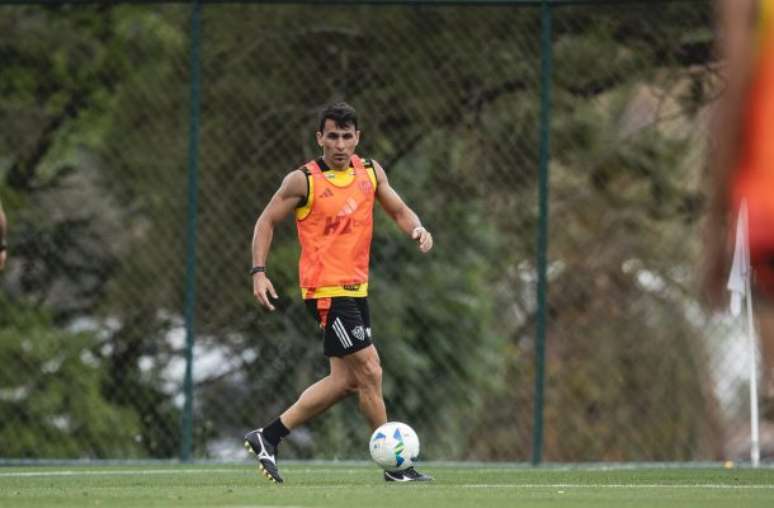In a ceremony marking the anniversary of the assassination attempt on the dictator, the Federal Chancellor declares that the attempt to overthrow the Nazi regime in 1944 failed, but that the unifying goals of the resistance remain. Members of the German political class, including Federal Chancellor Olaf Scholz, attended this Saturday (20/07) a ceremony marking the 80th anniversary of the attempted assassination of Adolf Hitler by German army officers during the Second World War.
“The attempted coup of July 20, 1944, failed. But the unifying goals of the resistance did not fail,” Scholz said at the memorial ceremony in Berlin, which took place in a courtyard of Berlin’s Bendlerblock, a military complex that now houses the Memorial to the German Resistance. It was here that some of the main perpetrators of the attack were executed in 1944.
In his speech, Scholz also said that the plot against Hitler proves that there is an alternative to the Nazi dictatorship and that resistance and the construction of a better Germany are possible.
“There is an alternative to the Nazi dictatorship. There is the other, better Germany: liberal, democratic, based on the rule of law,” Scholz said.
Indignation
On July 20, 1944, Colonel Claus Schenk von Stauffenberg, a member of a group of officers and aristocrats who had turned against Hitler, planted a bomb at the headquarters known as “Wolf’s Lair” in the former East Prussia, now within the borders of Poland.
But the bomb that Stauffenberg hid in a suitcase left in the room where the Nazi dictator was attending a conference did not reach its target. Hitler suffered only a few injuries. That same day, an attempted coup to remove the Nazis from power, which became known as “Operation Valkyrie”, failed. The colonel and hundreds of members of the resistance, including military men, aristocrats, clerics and conservative politicians, ended up being executed one after another in the days and weeks that followed.
Tributes
In her speech, Scholz stressed that citizens of modern Germany do not need to take risky actions such as assassinating a dictator. But the Federal Chancellor called on citizens to engage in democratic processes and to stand up to extremism.
“Our democracy depends on our tireless efforts, on the efforts of each and every one of us,” Scholz said.
German Federal President Frank-Walter Steinmeier, who was also present at the ceremony, called on Germans to “protect democracy”.
“The resistance against National Socialism was necessary because Weimar democracy did not have the necessary support,” the president said, referring to the short-lived democratic republic of 1919-1933 that was extinguished by the Nazis.
Steinmeier also said that citizens should not be carried away by hatred. “Violence destroys democracy.”
Recalling the 1944 assassination attempt, Steinmeier said Stauffenberg and his conspirators were not “perfect heroes” but people “who did the right thing at the right time at great risk to themselves and their families.”
This Saturday, Scholz and Defense Minister Boris Pistorius also attended a swearing-in ceremony for around 400 recruits to the German Army (Bundeswehr).
German ambivalence
Stauffenberg’s legacy in postwar Germany has stirred mixed feelings in the country. Some see him as a hero of the anti-Nazi resistance, but others see him as an opportunist who turned against the Nazi dictator only when Germany’s defeat became inevitable.
Historian Wolfgang Benz told the Augsburger Allgemeine newspaper in 2019, on the 75th anniversary of the attack, that it is important for Germans to remember the broader resistance movement against Nazism, and not just the military officers involved in the July 20 attack. Conservatives have always focused on the military resistance, but it came too late. [na guerra]”, he said.
jps (dpa, dw, ots)
Source: Terra
Rose James is a Gossipify movie and series reviewer known for her in-depth analysis and unique perspective on the latest releases. With a background in film studies, she provides engaging and informative reviews, and keeps readers up to date with industry trends and emerging talents.




![Everything starts here: What are you waiting for on Tuesday, September 16 in 1264 episodes [SPOILERS] Everything starts here: What are you waiting for on Tuesday, September 16 in 1264 episodes [SPOILERS]](https://fr.web.img3.acsta.net/img/2d/2c/2d2c88e94ddd9c5ee182b140e8964db5.jpg)

